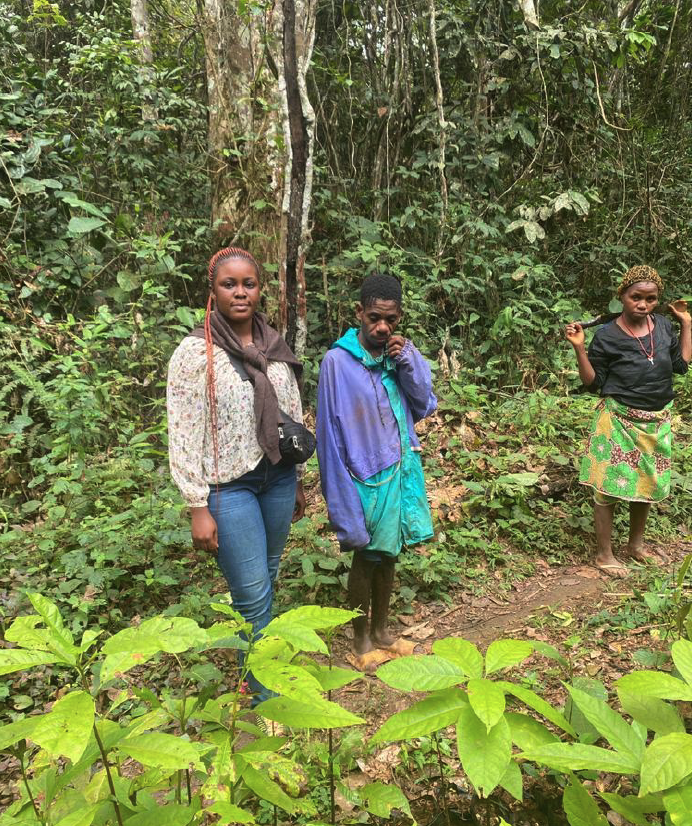She is passionate about nature conservation and possesses strong skills in building a team and a diligent work ethic. With a professional Bachelor’s in Environmental and Social Impact Assessment (ESIA) gained through an internship with WCS in the villages surrounding the Mbam and Djerem National Park, she has acquired valuable professional experience. Currently interning at CBI, she aims to explore her passion for nature further and pursue a professional Master’s in ESIA.
The Ebony project launched in 2016 follows the approach developed by ICRAF: participatory approach to the domestication of high-value indigeneous fruit by creating a sustainable population of Dyospyros crassiflora, it aims to increase the incomes of local residents and serve as an example in the process of restoring degraded land and conserving species in the tropical forests of Central Africa. It is therefore necessary to assess the impacts of the sustainable ebony project on the gender function of the local community. To do so, we will focus on three main objectives: (1) to determine the communities’ perception of the project; (2) to identify, analyze and assess the project’s impacts based on the livelihoods, economic incomes and food security of project participants; and (3) to find solutions to minimize negative impacts and optimize positive ones. To this end, 180 participants will be interviewed in the villages of Adjane, Bifolone, Kompia, Sembe, Abakoum and Mintoum, in eastern Cameroon, using survey forms integrated into the Kobotoolbox. The expected results are: The perception of the Ebony project by the communities is determined; The socio-economic impacts of the Ebony project since its launch are analyzed; Measures to improve and mitigate the identified impacts are proposed.
